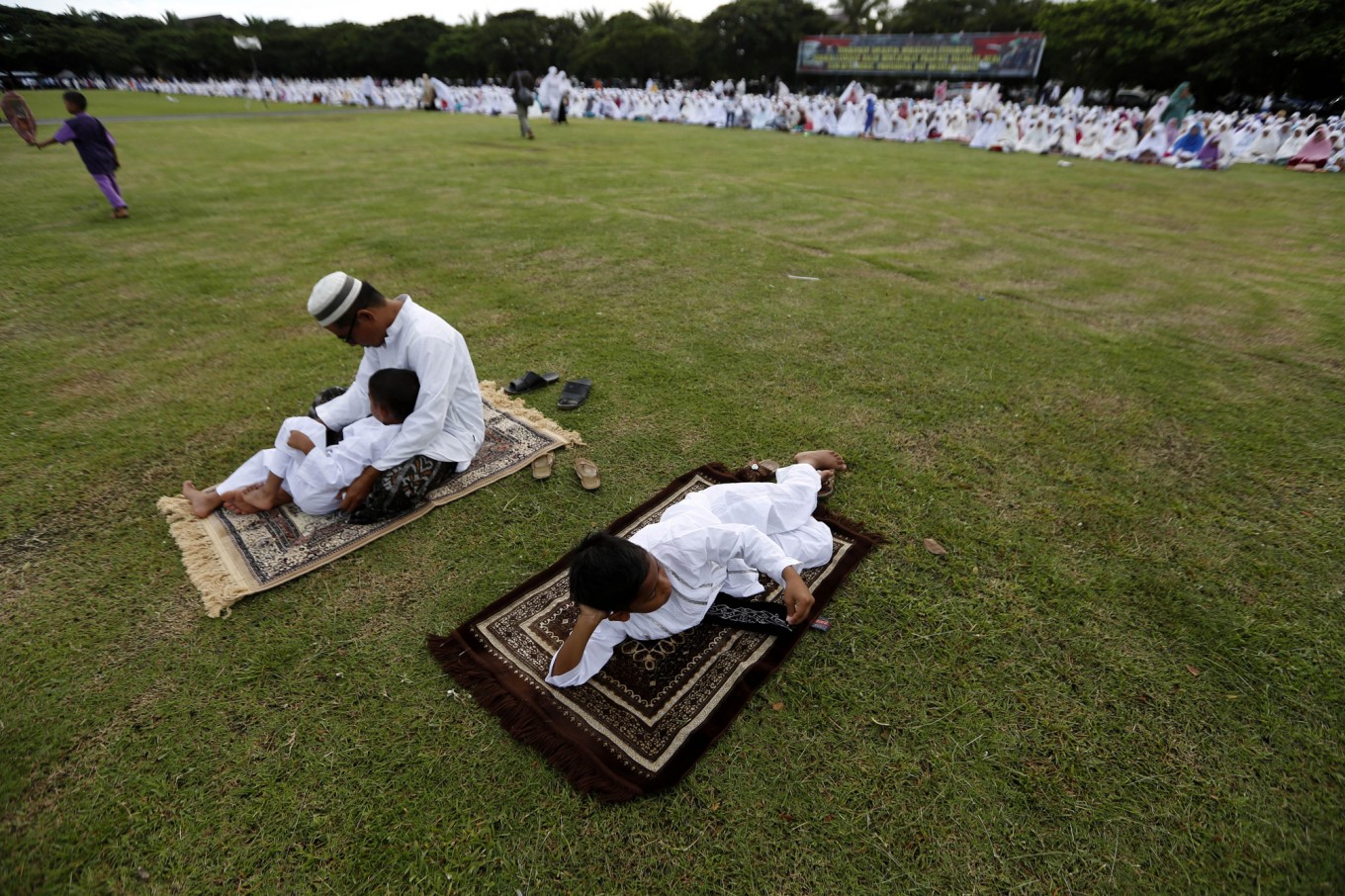Popular Reads
Top Results
Can't find what you're looking for?
View all search resultsPopular Reads
Top Results
Can't find what you're looking for?
View all search resultsMuhammadiyah calls for Muslims to hold Idul Adha prayers with family, small congregations
Muhammadiyah's circular states that only people living in "green zones" may organize Idul Adha mass prayers in small open spaces in their respective neighborhoods while complying with strict health protocols.
Change text size
Gift Premium Articles
to Anyone
I
ndonesia’s second-largest Muslim group, Muhammadiyah, has said that its members and Muslims in general may take part in mass prayers for Idul Adha (Day of Sacrifice), expected to fall on July 31, with their own families or in small congregations in their neighborhoods with strict COVID-19 health protocols in place.
The group announced its stance in a circular jointly signed by Muhammadiyah chairman Haedar Nashir and deputy secretary Agung Danarto.
The circular came alongside guidance on Idul Adha observance and worship amid the pandemic issued by the organization’s tarjih (law making) and tajdid (reform) council.
Reading out the circular during a press conference at the Muhammadiyah headquarters in Yogyakarta, Agung said that Muslims should not hold Idul Adha mass prayers in public squares with large congregations.
“Those who want to conduct the prayer can do so at home together with their own family members in the same way as it is conducted in squares,” Agung said during the event held Wednesday, which was also aired live on the organization's media channels.
Read also: Muhammadiyah allows mosques to hold mass Friday prayers with strict health protocols
The circular states that only people living in "green zones" – referring to cities and regencies where the risk of infection is the lowest– may organize Idul Adha mass prayers in small open spaces in their respective neighborhoods while complying with strict health protocols.
“The spread of COVID-19 has yet to decrease significantly. Conducting Idul Adha prayers in squares is allowed, but only in small [open spaces] or with a small number of people," said Syamsul Anwar of Muhammadiyah's tarjih and tajdid council.
Muhammadiyah previously announced that this year’s Idul Adha would fall on Friday, July 31. Observance of the Islamic holy day includes holding mass prayers in the morning followed by qurban (animal sacrifice), the meat from which is distributed to the poor.
The group also encouraged Muslims in its circular to convert their qurban to sadaqah (alms) to help those who have been hit hard by the pandemic, or to do both if they could afford it, as Muhammadiyah acknowledged that the health crisis had caused social and economic problems that had forced many into poverty.
“That is why it is very advisable that Muslims prioritize sadaqah over slaughtering sacrificial animals,” Agung said while reading out the circular.










